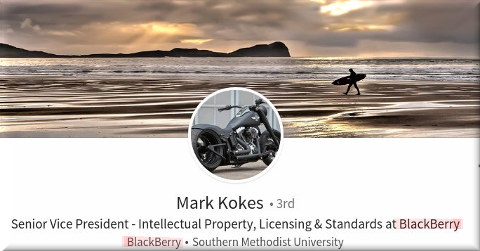

This man is gone, but his toxic legacy lives on
THE European Patent Office (EPO) can never get itself to obey the law. In that regard it is at least consistent and António Campinos is no exception but perpetuation.
"This is the kind of scenario we've long warned about (since 2006). Europe is being infiltrated by armies of patent bullies, who nonchalantly leverage software patents."Referring to software patents by another/any other name, yesterday the EPO wrote: "There has been a very steep rise in the number of European patent applications related to autonomous driving."
The EPO then uttered or name-dropped 3 buzzwords/hype waves in one tweet; all mean software patents which the EPO's granting authority is not allowed to grant (4IR, AI, blockchain). To quote: "How do you see the impact of the technologies of the fourth industrial revolution (e.g. #AI, #blockchain, etc.) on the functioning of the patent system?"
We got accustomed to such tweets. There are several likes these (software patents advocacy) every day.
It has meanwhile turned out, based on RPX, that Blackberry leverages ridiculous software patents, granted by the U.S. Patent and Trademark Office (USPTO), against companies like Facebook (we covered this before) and now there's this new find from Mr. Gross: "New owner of Blackberry patents sues Apple for infringement; USB charging features: https://insight.rpxcorp.com/litigation_documents/13230734 … Complaint identifies licensing deals with LG, Samsung and Huawei, only Apple is holdout!"
Florian Müller has meanwhile just published this post about what BlackBerry does in Europe: "BlackBerry suing Facebook and its WhatsApp and Instagram subsidiaries over five European software patents in Munich"
As the former director of the European NoSoftwarePatents campaign I always find it shocking what kinds of patents the European Patent Office (EPO) grants despite the exclusion of "programs for computers as such" from the scope of patentable inventions according to Article 52 of the European Patent Convention (EPC).
Post-grant reviews often do away with those patents, but rarely ever on the basis of Art. 52 EPC per se. What typically happens is that the Federal Patent Court of Germany or other courts of competent jurisdiction categorize some claim limitations as "non-technical" and purposely ignore them in their novelty or inventiveness analysis. Whatever little remains then is often anticipated by, or at the very least obvious over, the prior art. But, unfortunately, efficiency gains (reduced data volumes, increased processing speeds, economic use of screen space etc.) often serve as an excuse for circumventing Art. 52 EPC.
Tomorrow the Munich I Regional Court will hold a first hearing in one of eight BlackBerry v. Facebook/WhatsApp/Instagram cases over a total of five different patents--all of them pure software patents. Patents on "programs for computers as such."